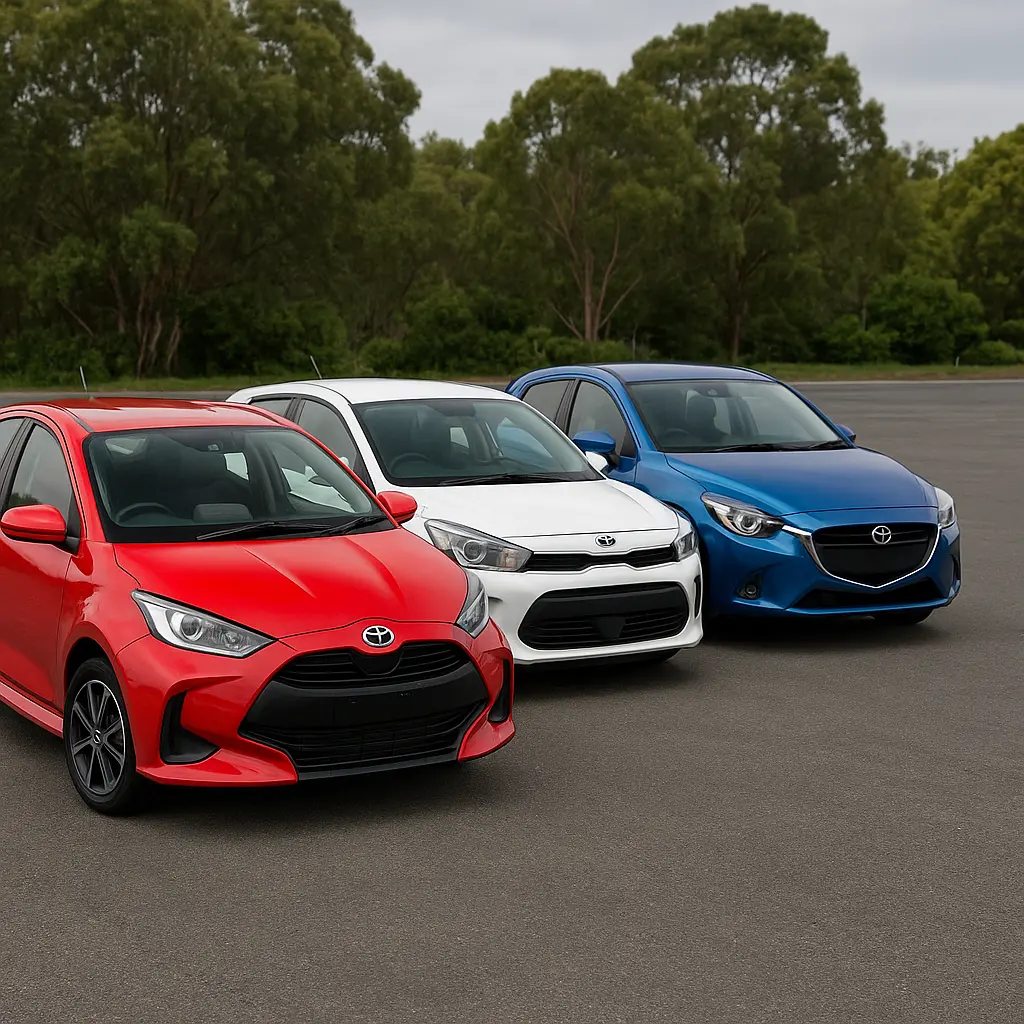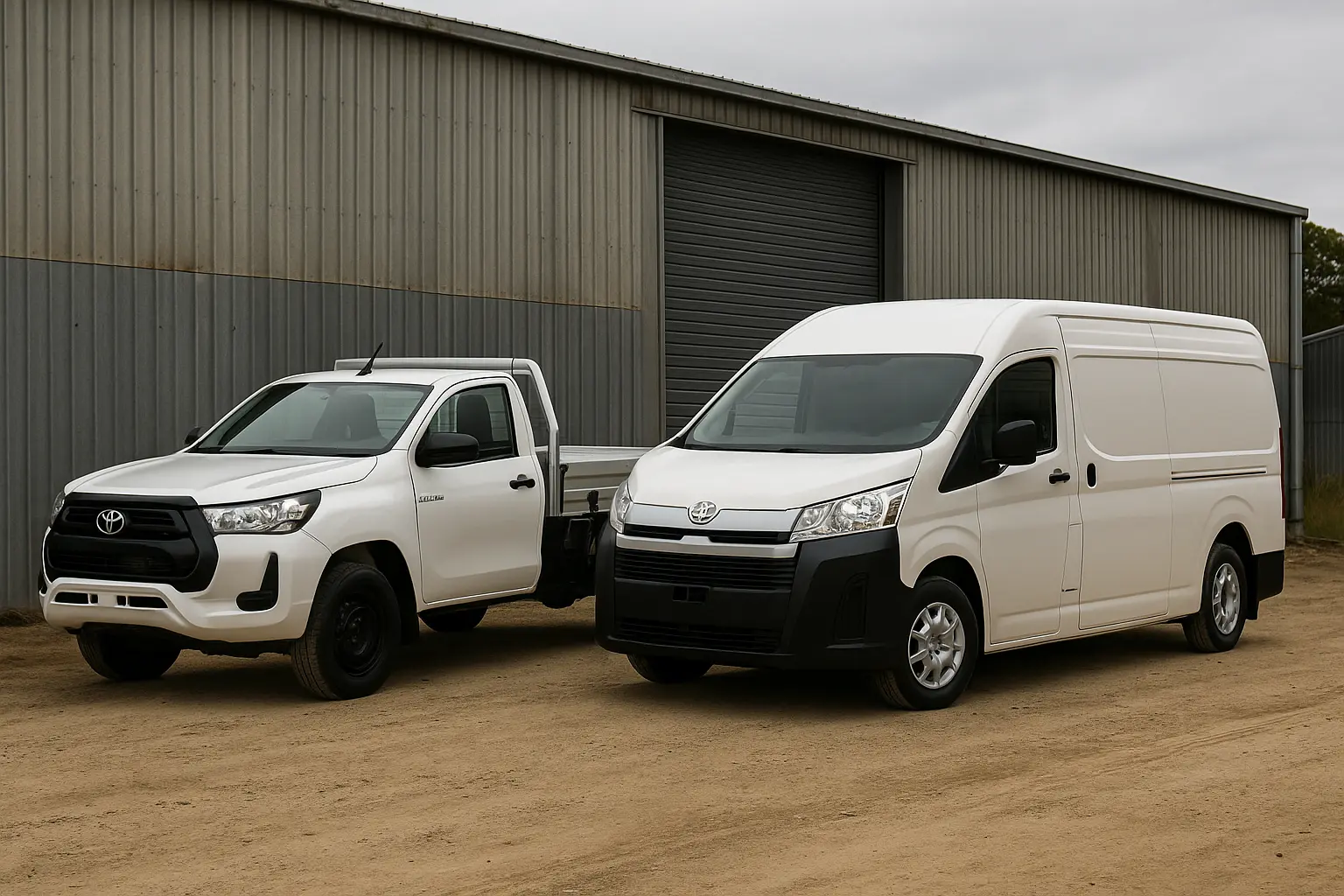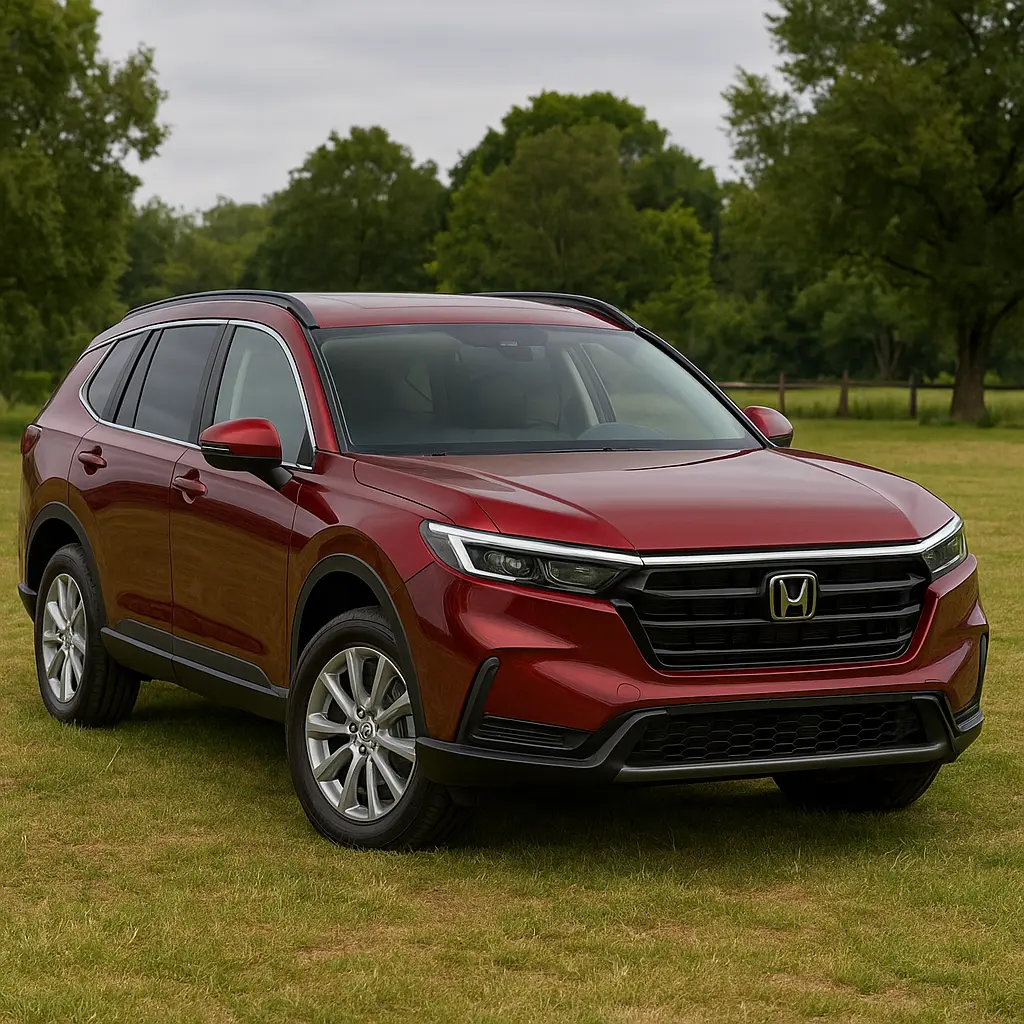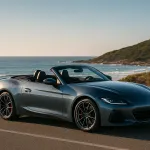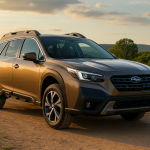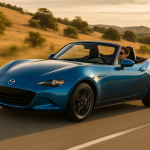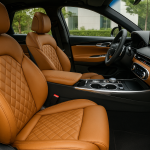Australia’s car market is changing fast. SUVs may dominate sales charts, but small cars remain a favourite for city drivers, students, and budget-conscious families. With rising fuel costs, parking headaches in urban areas, and the growing demand for practical yet affordable vehicles, compact hatchbacks and sedans continue to offer unbeatable value.
This comprehensive guide dives deep into the best small cars available in Australia in 2025. We’ll explore popular hatchbacks, stylish small sedans, budget-friendly options, hybrid and electric compact cars, and even some premium choices that deliver luxury in a compact package. Whether you’re after a reliable first car, a city runabout, or a fuel-efficient commuter, this article covers it all.
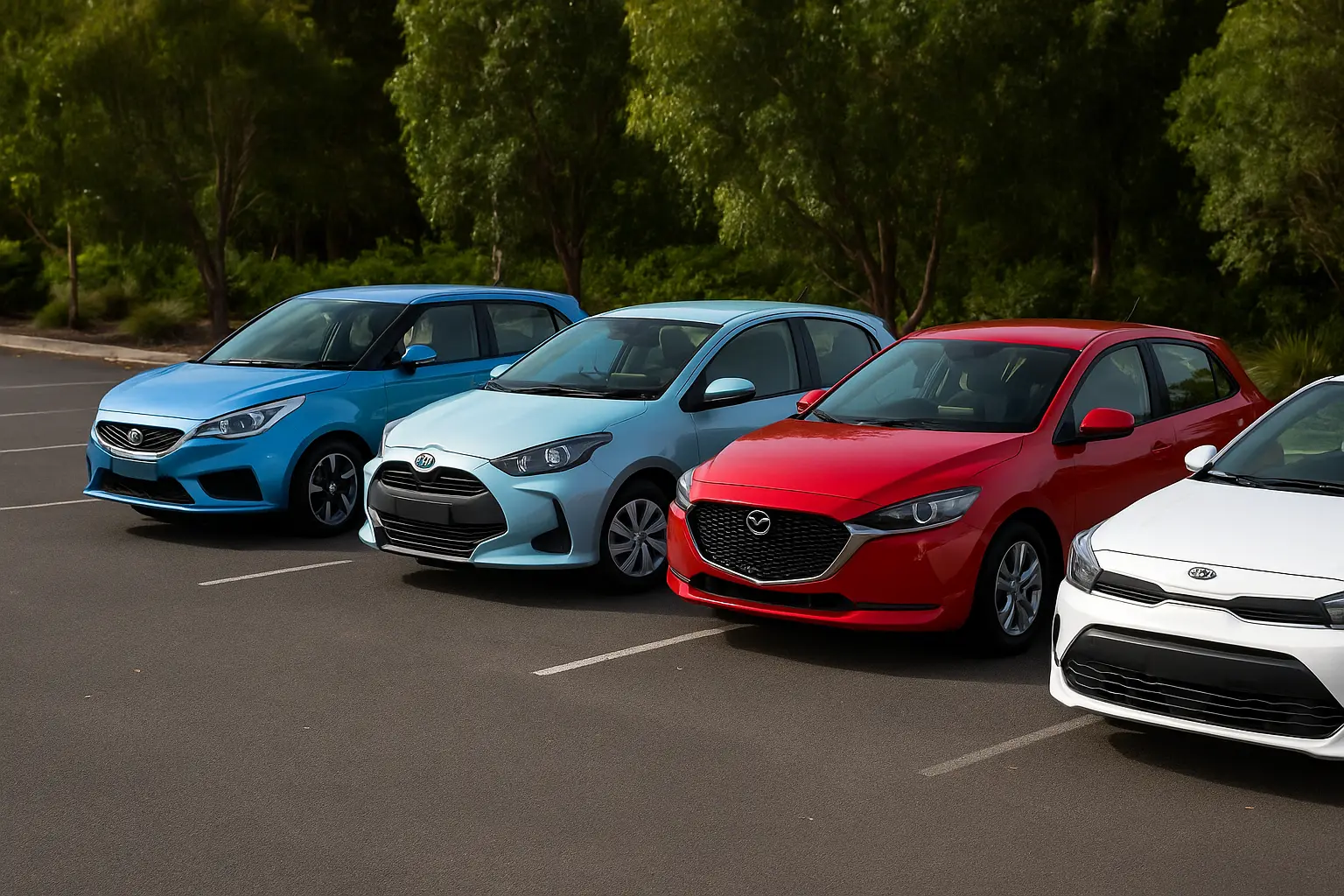
Why Australians Still Love Small Cars
Despite the SUV boom, small cars remain practical and appealing for several reasons:
- Affordability: Entry-level hatchbacks and sedans typically cost far less than SUVs.
- Fuel Efficiency: Compact size means lighter weight and better mileage.
- Urban Practicality: Easy parking, tight turning circles, and agile handling suit city traffic.
- Lower Running Costs: Servicing, insurance, and tyre replacement are often cheaper.
- Variety of Choices: From budget-friendly models like the MG3 to tech-packed options like the Toyota Corolla, the segment has something for everyone.
What to Look for When Buying a Small Car in Australia
Choosing the right compact vehicle depends on your lifestyle and driving needs. Here are key factors to consider:
- Fuel Economy: Critical with rising petrol prices; hybrids and efficient petrol engines shine.
- Safety Ratings: Look for ANCAP 5-star ratings and advanced driver-assist tech.
- Interior Space: While compact, some models cleverly maximize boot and cabin room.
- Technology: Infotainment, smartphone integration, and driver aids matter in 2025.
- Ownership Costs: Servicing packages, warranties, and resale values vary across brands.
Best Budget-Friendly Small Cars
MG3
The MG3 continues to dominate as one of the cheapest new cars in Australia. Its low drive-away price and 7-year warranty appeal strongly to students and first-time buyers.
- Pros: Affordable, stylish design, long warranty.
- Cons: Lacks advanced safety features compared to rivals.
Kia Rio (Final Editions)
Though nearing the end of its life cycle, the Kia Rio remains a reliable and practical hatchback with impressive warranty coverage.
- Pros: Solid build, good driving dynamics, Kia’s 7-year warranty.
- Cons: Limited future updates as Kia focuses on SUVs and EVs.
Best Everyday Hatchbacks
Toyota Corolla
An Aussie favourite for decades, the Corolla blends reliability, fuel efficiency, and modern technology. Available in petrol and hybrid variants, it’s a safe bet for anyone.
- Pros: Excellent resale value, hybrid efficiency, strong safety tech.
- Cons: Pricier than some rivals.
Hyundai i30
The Hyundai i30 is a versatile hatchback offering everything from budget trims to sporty N models. Its balance of comfort, features, and warranty makes it a top pick.
- Pros: Wide range of trims, strong safety package, user-friendly tech.
- Cons: Some models can be on the pricier side.
Best Small Sedans
Mazda 3 Sedan
While hatchbacks dominate this segment, the Mazda 3 sedan offers sleek styling, strong safety features, and one of the most premium interiors in its class.
- Pros: Class-leading interior, enjoyable driving dynamics.
- Cons: Higher price point, firm ride in some trims.
Toyota Yaris Sedan (Hybrid Options)
Compact yet efficient, the Yaris sedan is a clever choice for drivers prioritizing fuel economy.
- Pros: Excellent hybrid efficiency, Toyota’s strong reliability record.
- Cons: Smaller boot compared to rivals.
Best Hybrid & Electric Small Cars
Toyota Yaris Hybrid
Australia’s growing appetite for hybrids puts the Yaris Hybrid in the spotlight. It’s compact, frugal, and ideal for urban living.
- Fuel Economy: Around 3.3L/100km in real-world driving.
BYD Dolphin (EV)
The BYD Dolphin is one of the most affordable electric cars in Australia. It’s small, stylish, and perfect for city drivers wanting to switch to EVs.
- Range: Around 340–400km (depending on variant).
- Pros: Budget-friendly EV, modern tech features.
- Cons: Limited long-term brand track record in Australia.
Mini Cooper SE (Electric)
For drivers wanting style and sustainability, the Mini Cooper SE offers a premium small electric option.
- Pros: Iconic design, fun driving experience.
- Cons: Limited range compared to some newer EVs.
Premium Small Cars
Audi A1 Sportback
The Audi A1 proves that small can still mean luxurious. With premium interior finishes and German engineering, it’s a chic city car.
- Pros: High-quality build, advanced infotainment.
- Cons: Pricey compared to mainstream small cars.
BMW 1 Series
A compact luxury hatch with sharp styling and strong performance.
- Pros: Premium interior, sporty driving experience.
- Cons: Higher servicing and insurance costs.
Fuel Efficiency Champions
Small cars shine in the efficiency department, but these models stand out in 2025:
- Toyota Corolla Hybrid: 4.2L/100km.
- Hyundai i30 Sedan Hybrid (overseas markets arriving soon in AU): ~4.0L/100km.
- Yaris Hybrid: 3.3L/100km.
- BYD Dolphin (EV): Zero fuel, around 15kWh/100km.
Safety in Small Cars
Safety remains a top priority for Australian buyers. Many small cars now come equipped with:
- Autonomous emergency braking (AEB).
- Lane-keeping assist.
- Adaptive cruise control.
- Reversing cameras and sensors.
The Toyota Corolla, Mazda 3, and Hyundai i30 consistently perform well in ANCAP safety tests.
Ownership & Running Costs
When buying a small car, it’s not just the purchase price that matters.
- Servicing: Toyota’s capped-price servicing is among the cheapest.
- Insurance: Hatchbacks like the MG3 and Kia Rio are generally cheaper to insure than premium models like the Audi A1.
- Resale Value: Toyota and Mazda consistently lead the resale charts.
Future of Small Cars in Australia
While SUVs dominate, small cars are far from disappearing. With the rise of EVs and hybrids, compact vehicles are getting smarter, cleaner, and better equipped. Brands like Toyota, Hyundai, BYD, and Mazda continue investing in this space, ensuring Australians still have strong choices in 2025 and beyond.
Final Thoughts
Small cars may no longer outsell SUVs in Australia, but they remain vital for buyers seeking affordability, efficiency, and practicality. From the budget-friendly MG3 to the stylish Mazda 3, from the tech-packed Toyota Corolla Hybrid to the futuristic BYD Dolphin EV, there’s a compact vehicle for every type of driver.
For city commuters, students, families, and eco-conscious drivers, small cars represent the perfect balance of value and versatility. As Australia transitions towards electrification, this segment will only become more exciting.
Leave a comment
Your email address will not be published. Required fields are marked *


